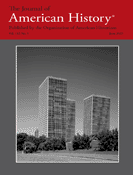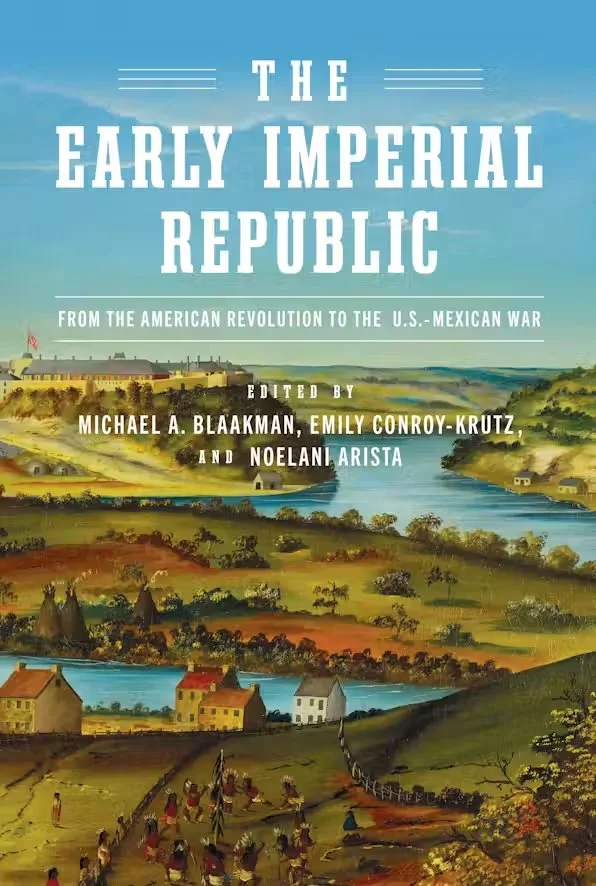Recent Publications
-

Birthright or Citizenship: Tutelage, Consular Protection, and Race in the U.S. Empire before the Civil War" Journal of American History 112 no. 1 (June 2025): 15-35
In 1848 and 1853, respectively, two Black men illegally enslaved in Cuba sought out the U.S. consul in Havana as a potential ally in their legal petitions for freedom. John Lytle and Ben Newton claimed consular protection based on their free birth on U.S. soil. In response, State Department officials, both on the ground and in places of power in Washington, D.C., relied on a legal category between citizen and alien, maintaining a division between the rights of citizens and the protections that native-born individuals could access. This outcome allowed the consuls to confer practical benefits to Lytle and Newton, assert U.S. power over them abroad, and simultaneously maintain the color line domestically.
-

"Sources and U. S. Citizenship in the Antebellum United States: A View from Abroad" Law & History Review 42 no. 3 (Aug., 2024): 649-658.
This article republishes a series of documents concerning citizenship rights for African Americans who were abroad. Twice during the 1850s the U.S. Secretary of State (William L. Marcy) issued instructions to consuls where he spelled out the relationship between race and citizenship for individuals who were beyond the borders of the United States. Because citizenship was not clearly defined the antebellum period, either in law or practice, the Secretary's guidance offers an important set of documents that scholars from a variety of fields can incorporate into their scholarship and teaching.
-

"Freedom in Chains: U.S. Empire and the Illegal Slave Trade" in The Early Imperial Republic: From the American Revolution to the U.S.-Mexican War ed. Michael Blakeman, Emily Conroy-Krutz, and Noelani Arista (Philadelphia: University of Pennsylvania Press, 2023): 179-201.
Whereas historians often talk about the expansion of the U.S. Slave Empire in national terms, this chapter shows the international and diasporic dimensions of slavery’s growth in the United Staten. It does this by exploring the kidnapping of apprentices from Barbados into Texas. Centering one case from 1835, it traces how the end of slavery in the British Caribbean triggered forced migrations into the nearby plantation sector in the U.S. South.
Full List of Publications
Monograph:
The Alchemy of Slavery: Human Bondage and Emancipation in the Illinois Country, 1730-1865. Philadelphia: University of Pennsylvania Press, 2018.
(Reviews included in: American Historical Review, Journal of American History, Reviews in American History, Journal of the Early Republic, Slavery & Abolition, Eighteenth Century Studies, Journal of American Studies, Journal of the Civil War Era)
Peer-Reviewed Articles and Book Chapters:
“Birthright or Citizenship: Tutelage, Consular Protection, and Race in the U.S. Empire Before the Civil War” Journal of American History 112 no.1 (June 2025):15-35.
"Freedom in Chains: U.S. Empire and the Illegal Slave Trade" in The Early Imperial Republic: From the American Revolution to the U.S.-Mexican War ed. Michael Blakeman, Emily Conroy-Krutz, and Noelani Arista (Philadelphia: University of Pennsylvania Press, 2023): 179-201.
"Abolishing Slavery in Motion: Foreign Captivity and International Abolitionism in the Early United States” William and Mary Quarterly 77 no. 2 (April, 2020): 246-72.
“Black Migration, Black Villages, and Black Emancipation in Antebellum Illinois” in Emancipations, Revolutions, Reconstructions: Black Politics in the Long Nineteenth Century ed. David Waldstreicher and Van Gosse (Philadelphia: University of Pennsylvania Press, 2020): 102-115.
“‘Reducing Freedmen to Slavery': Black Kidnapping and the Politics of Abolition in Antebellum Illinois,” Journal of the Early Republic 38 no. 2 (Summer 2018): 261-91.
“Beyond Plantations: Indian and African Slavery in the Illinois Country, 1720-1780,” Slavery and Abolition 38 no. 3 (Sept., 2017): 489-509.
“In A State of Slavery: Black Servitude and the Limits of Legal Emancipation” Early American Studies 14 no.1 (Winter 2016): 114-39.
“’That A’Cursed Illinois Venture’: Slavery and Revolution in Atlantic Illinois,” Journal of Illinois History 13 no. 2 (Summer 2010): 107-28.
Edited Works:
Guest editor with Michael Bernath, "Cracks in the Foundation: The Fourteenth Amendment and its Limits,” introduction to special issue of the Journal of the Civil War Era 10 no. 2 (March 2020): 1-4.
“Sources and Citizenship in the Antebellum U.S.: A View from Abroad” Law & History Review (Published online February 17, 2025).